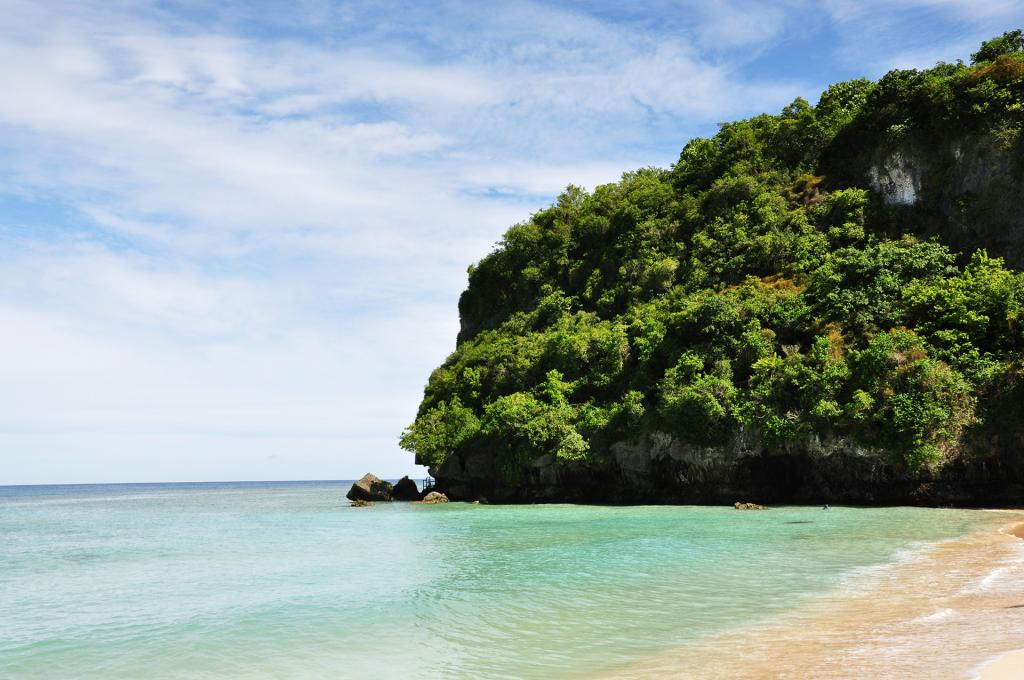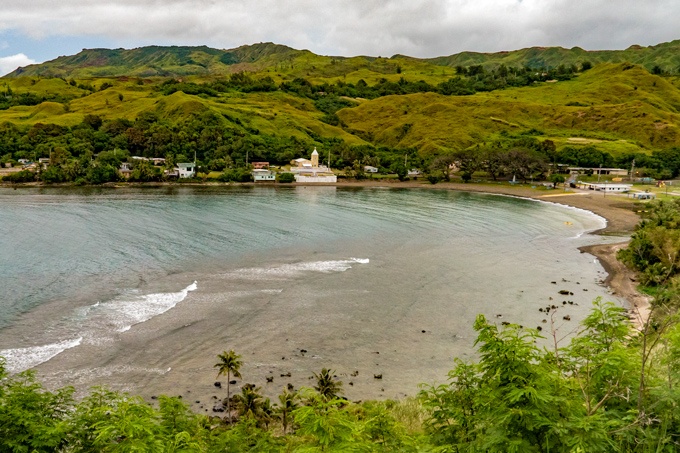Guam may be best known as a U.S. territory with luxury shopping, but that’s just the glossy exterior. Underneath, there is an exotic island culture waiting to be discovered. If you’re a culture vulture, follow our guide for the best way to immerse yourself in local food, history, and traditions.
1. EAT LIKE A LOCAL
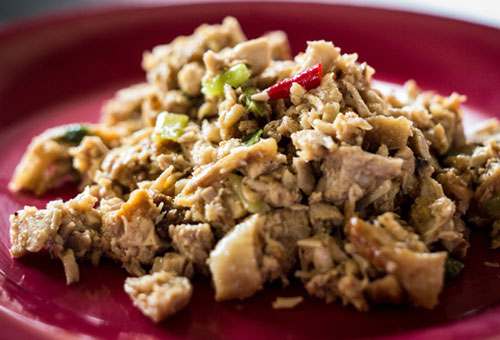
Signature local dish. A combination of lemon juice, onions, local hot peppers, salt and sometimes grated coconut are used to “kelaguen” either seafood, beef, chicken or even Spam.
Kadon Pika is another local favorite. The Chamorro word “kadon,” when translated, means stew and the word “pika” means spicy. Ingredients include soy sauce, vinegar, salt and black pepper, onions, garlic, local hot peppers and last, but most certainly not least, coconut milk. Discover the other must-try foods on Guam!
2. MUST-SEE UMATAC

The small village of Umatac is located in southern Guam along Umatac Bay. Interspersed between old houses that sit along the bay’s shoreline are ruins that have become prominent reminders of the Spanish colonial era in the village. Plaques are placed throughout the village that describe the Spanish era to visitors. Remains of the Spanish times include the former Spanish governor’s residence, the site of the old San Dionisio church and several Spanish forts and a battery. A couple of small stores and the San Dionisio Church, built at its current location in 1939, sit along the road.
At the center of the bay is an obelisk monument to Ferdinand Magellan’s landing in 1521, bearing the inscription, “Magellan landed here.” After the bridge, the road runs uphill, where visitors can turn off into a small park to see the ruins of Fort Nuestra Senora de la Soledad (commonly referred to as Fort Soledad), constructed to protect the bay from pirates and other European explorers. (SOURCE: Guampedia)
3. SHOP, EAT & BE ENTERTAINED AT CHAMORRO VILLAGE
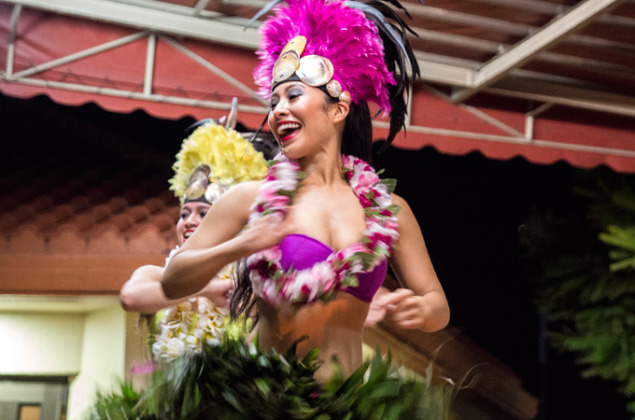
Chamorro Village is a must-do on Guam. The outdoor mall is open every day but the main event happens every Wednesday night from 5:30 p.m. to 9:30 p.m. when tourists and locals gathers for the outdoor market and a multitude of cultural events. You can even ride a carabao!
The markets are a great way to find inexpensive souvenirs and gifts for everyone on your list. The aroma of fresh local foods can be tempting, so be sure to bring your appetite. Vendors offer great food for even better prices, from $1 for a chicken or pork BBQ stick, $2 for banana lumpia (banana eggrolls drizzled in honey), and if you’re still hungry, plates of food vary from $5-9.
4. STROLL THROUGH INARAJAN VILLAGE
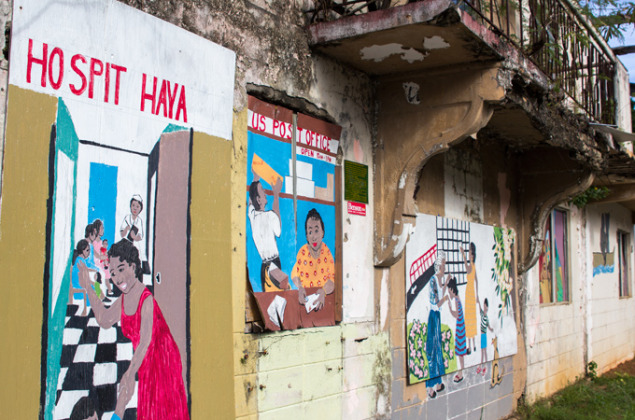
Going into Inarajan is like taking a step back in time through Chamorro history. It remains one of the most untouched by change, even being listed in the National Register of Historic Places in 1977. To really feel like you have stepped back onto an ancient island, stop by the Gef Pa’go Cultural Village, where you can walk through an ancient Chamorro village, compete with thatch-roofed huts and demonstrations of traditional arts and crafts. Among the most popular sites in Inarajan are the natural ocean side pools, aptly called, Inarajan Pools.
5. GET LOCAL AT A VILLAGE FIESTA

Each of Guam’s 19 villages has its own festival day, or fiesta, where it’s not unusual to see a village mayor working alongside the rest of the community to ensure the celebration is a success. Fiestas are a lively and intimate way for our visitors to get acquainted with the cultures of Guam’s small but vibrant municipalities. Each village on Guam is united around its own patron saint, Catholic church, and a favorite town gathering place, providing the perfect setting for an authentic Chamorro cultural experience — and a delicious local feast — on fiesta day.
6. HIT THE TRAILS
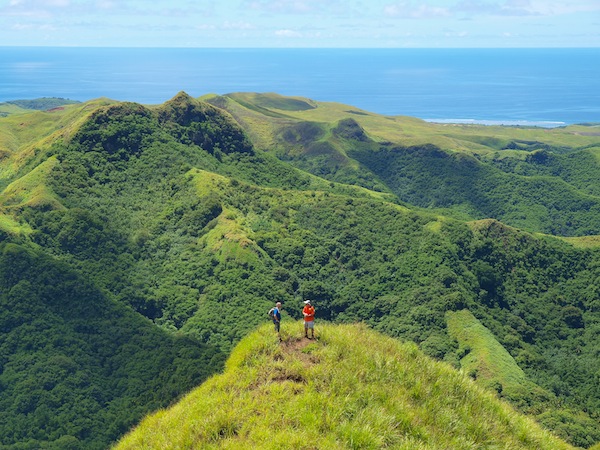
Hiking, called ‘boonie stomping’ on Guam, is an excellent way to experience the raw beauty of Guam, as well as see the way many locals live and even discover remnants of ancient Chamorro villages. Find family friendly hikes or join the Guam Boonie Stompers every Saturday for a new hike.
7. SHOP THE MANGILAO NIGHT MARKET

Mangilao is a centrally-located village with a culturally diverse popular of islanders. Every Thursday night, locals gather to sell food, wares, and everything but the kitchen sink. The market is free. It’s a chance to chat up the locals, from farmers to home cooks. You can pick up local produce such as eggplant, bananas, breadfruit, sweet potatoes, cucumbers, hot peppers, soursop, and papaya. Keep an eye on the Farm to Table Guam website for community and agriculture events…
8. VISIT WWII MUSEUMS & NATIONAL PARKS
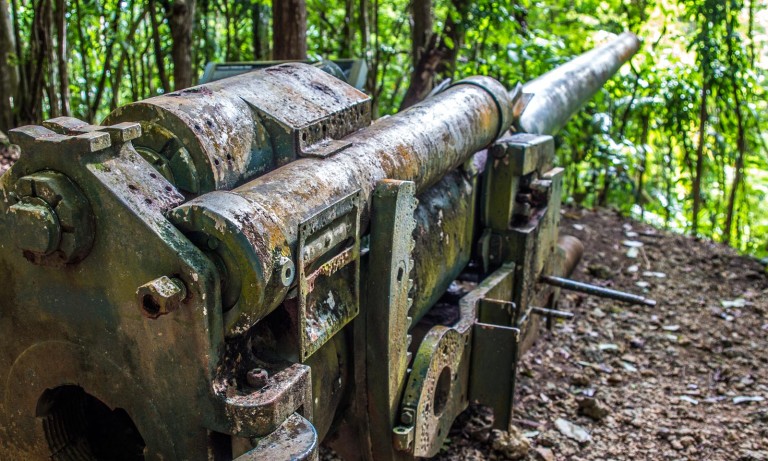
WWII is a part of the fabric of history in the Northern Marianas and especially so on Guam. Many old timers remember the cruel days of war and can recount in detail experiences they had as children. It’s a fascinating subject that can be explored if you know where to look. Start with the Pacific War Museum in Hagåtña or the T. Stell Newman Visitor Center in Piti, which has interactive exhibits featuring gripping personal stories, museum artifacts, and multiple language support. In addition to the exhibits, the visitor center theater plays our compelling 10-minute movie, The Battle for Guam, in four languages.
Next, visit the many remnants of WWII such as Japanese pill boxes, guns, and even ship wrecks. Piti Guns is part of the War in the Pacific National Parks Service and as such has a recorded history lesson accessible at the press of a button. You could also dive to see something incredibly unique to Guam — two shipwrecks from two world wars nearly touching.
9. ATTEND THE GUAM MICRONESIA ISLAND FAIR
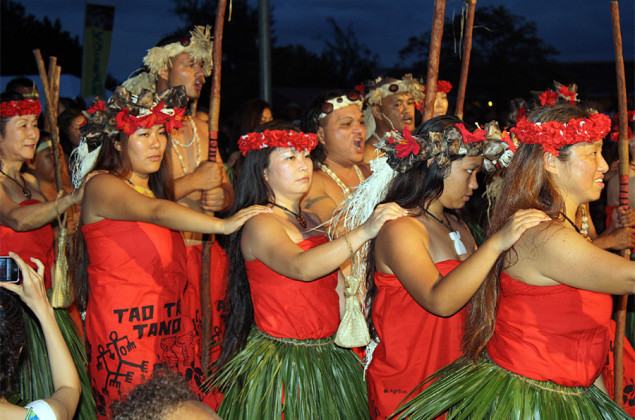
The Guam Micronesia Island Fair is an annual signature cultural event showcasing the vibrant cultures of Micronesia. For over a quarter century, delegations from the Federated States of Micronesia, Rota, Saipan and Tinian and the republics of Kiribati, Nauru, the Marshall Islands and Palau, have gathered on Guam to commemorate the region’s largest cultural event. Meet Micronesia’s master carvers, blacksmiths, traditional fishing experts, jewelers, weavers, dancers, musicians and chefs and see first hand customs that have been in place and perpetuated for the millennia.
10. VISIT THE GUAM MUSEUM
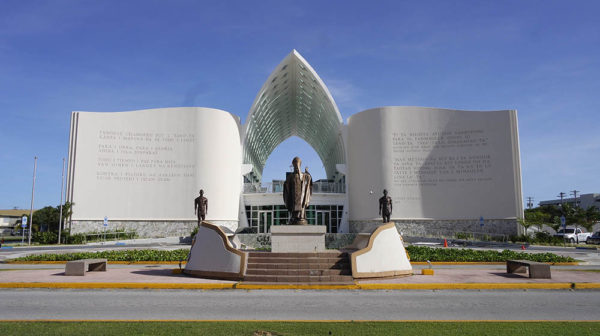
Located in downtown Hagatna, the Senator Antonio M. Palomo Guam Museum & Educational Facility reflects the diversity, creativity, and resilience of Guam and the Mariana Islands. It has over 250,000 unique artifacts, documents and photographs in its collections, the earliest dating back to 1887 from the Philippine Exposition in Madrid, Spain. The museum opened in 2016 and is one of Guam’s most unique architectural features.








